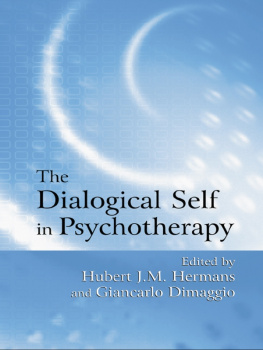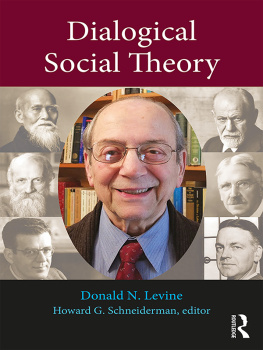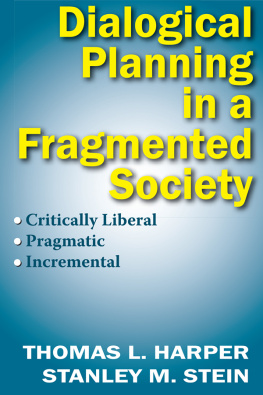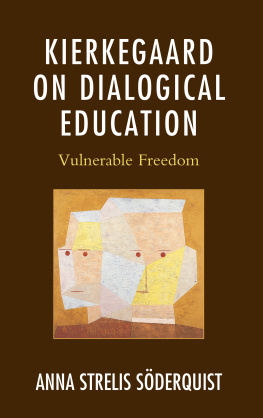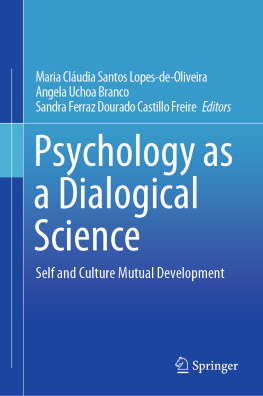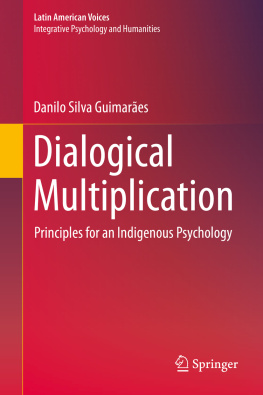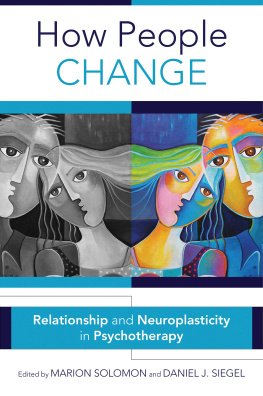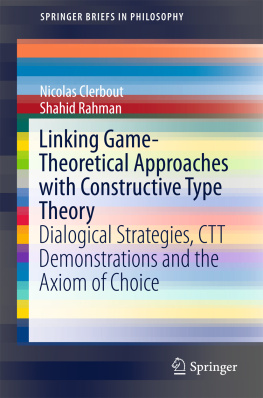Hubert J.M. Hermans - The Dialogical Self in Psychotherapy: An Introduction
Here you can read online Hubert J.M. Hermans - The Dialogical Self in Psychotherapy: An Introduction full text of the book (entire story) in english for free. Download pdf and epub, get meaning, cover and reviews about this ebook. year: 2016, publisher: Routledge, genre: Religion. Description of the work, (preface) as well as reviews are available. Best literature library LitArk.com created for fans of good reading and offers a wide selection of genres:
Romance novel
Science fiction
Adventure
Detective
Science
History
Home and family
Prose
Art
Politics
Computer
Non-fiction
Religion
Business
Children
Humor
Choose a favorite category and find really read worthwhile books. Enjoy immersion in the world of imagination, feel the emotions of the characters or learn something new for yourself, make an fascinating discovery.
- Book:The Dialogical Self in Psychotherapy: An Introduction
- Author:
- Publisher:Routledge
- Genre:
- Year:2016
- Rating:4 / 5
- Favourites:Add to favourites
- Your mark:
The Dialogical Self in Psychotherapy: An Introduction: summary, description and annotation
We offer to read an annotation, description, summary or preface (depends on what the author of the book "The Dialogical Self in Psychotherapy: An Introduction" wrote himself). If you haven't found the necessary information about the book — write in the comments, we will try to find it.
The basic assumption of the dialogical self is that there is no centralised headquarter in the mind, but that the internal self is made up of a number of different characters. Interpersonal relationships, from infancy onwards, become internalised - these internalised relationships then influence relationships during life.
The Dialogical Self in Psychotherapy is divided into four clear and accessible sections, which explore:
* theoretical and historical assumptions of the dialogical self from different angles: psychological, developmental and neurobiological
* the relationships between Dialogical Self Therapy and the authors own theoretical perspectives
* treatment of clients suffering from severe disorders
* method and research.
The Dialogical Self in Psychotherapy gathers together psychotherapists from divergent origins to explore current thinking in the field: cognitive, constructivist, process-experiential, narrative, psychodynamic, psychodramatic, humanistic, and cognitive analytic. This innovative book brings together inter- and intra-subjective dialogue and clearly demonstrates how they are incorporated into the therapeutic process.
Hubert J.M. Hermans: author's other books
Who wrote The Dialogical Self in Psychotherapy: An Introduction? Find out the surname, the name of the author of the book and a list of all author's works by series.

